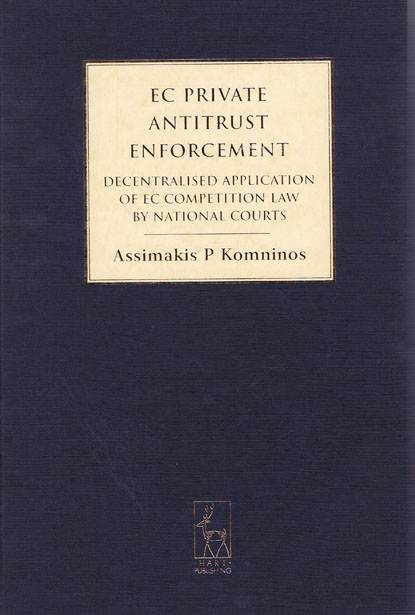
This book, written by an academic-cum-practitioner with substantial experience in the field of antitrust enforcement, presents the rise of private enforcement of competition law in Europe, especially in the context of the recent modernisation and decentralisation of EC competition law enforcement. In particular, the study examines the role of courts in the application of the EC competition rules and views that role in the broader system of antitrust enforcement.
The author starts from the premise of private enforcement’s independence of public enforcement and after examining the new institutional position of national courts and their relationship with the Court of Justice, the Commission, and public enforcement in general, proceeds to deal with the detailed substantive and procedural law framework of private antitrust actions in Europe.
The author describes the current post-decentralisation state of affairs but also refers to the latest proposals to enhance private antitrust enforcement in Europe both at the Community level, where reference is made to the December 2005 Commission Green Paper on Damages Actions and its aftermath, and at the national level, where reference is made to recent and forthcoming relevant initiatives.